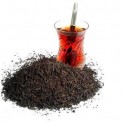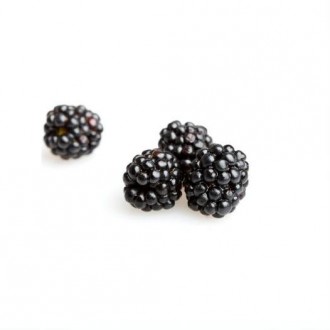Black Foods Are Red Hot
07.07.11
An easy way to ensure you are getting maximum nutrition as well as a variety of vitamins and minerals in your diet is to make sure there is an assortment of colors on your plate including black foods. Black-colored foods are great sources of antioxidants and phytochemicals both shown to help reduce the risk of cancer and to improve immune function. Cotton Candy health contributor, Registered Dietitian and founder of Real Nutrition NYC Amy Shapiro, sheds light on some of her favorite black foods below and why they’ll do your body good.
BLACK BEANS
Serving size: ½ cup (cooked from dry)
Calories: 114
Protein: 7.6 grams
Carbohydrates: 20.4 grams
Fat: 0.5 grams
Fiber: 7.5 grams
Like other beans, black beans offer the benefit of being a high fiber source of vegetarian protein. They also contain at least eight different flavonoids, called anthocyanins, which act within the body to combat cancer. These are the same compounds found in red wine, grapes, and other dark red fruits and vegetables. Black beans also offer 32 percent of daily folate needs, a particularly important vitamin for women of childbearing age to help prevent the risk of birth defects.
BLACKBERRIES
Serving size: ½ cup
Calories: 31
Protein: 1 gram
Carbohydrates: 7 grams
Fat: <1 gram
Fiber: 3.6 grams
High in fiber and low in calories, blackberries are the perfect waist-friendly snack or addition to your yogurt or oatmeal. They are a great source of flavonoids as well as antioxidants. In just a half cup serving, you’ll get 25 percent of your daily vitamin C needs – a nutrient that helps our bodies fight off free radicals which can cause cancer, wrinkles and inflammation. And if that wasn’t enough, they also contain vitamin K, a nutrient well-known for promoting blood and bone health.
BLACK LENTILS
Serving size: 1 ounce dry; yield after cooking without fat
Calories: 155 kilocalories
Protein: 12.11 grams
Carbohydrates: 27.01 grams
Fiber: 10.7 grams
Iron: 4.47 milligrams
Not only do lentils provide tons of soluble fiber, protein, and complex carbohydrates just like all legume, but in addition to all that good stuff they also contain 25 percent of your daily requirement for iron. Who needs red meat? Just remember that vegetarian sources of iron need to be consumed with a vitamin C-containing fruit or vegetable, such as peppers or tomatoes to allow the body to absorb the iron it needs. And if that isn’t enough, Lentils are also high in biotin, a B vitamin, which aids in the body’s metabolism and growth.
BLACK TEA
Serving size: 8 ounces brewed with water
62.3 milligrams caffeine
2 percent DV potassium
Some research suggests that a chemical in black tea, TF-2, may help fight colon cancer cell growth and inflammation associated with chronic disease. An eight-ounce cup of black tea also contains less caffeine than the same amount of coffee (62.3 milligrams versus 90.7 milligrams), so it may help you stay awake without causing insomnia, irritability, stomach upset and rapid heartbeat – all associated with too much caffeine intake.
BLACK RICE
Serving size: 1 ounce dry weight or 1/3 cup cooked
Calories: 102
Protein: 2.1 grams
Carbohydrates: 21.9 grams
Fat: 0.6 grams
Fiber: 0.2 grams
Black rice is a whole grain and often a cross between ancient black Chinese rice and Italian rice. It contains greater amounts of the B-vitamin complex than brown rice, and its whole grain cousin. B vitamins are essential for many body functions, including metabolism, healthy skin and muscle tone, as well as immune and nervous system functions.
BLACK OLIVES
Serving size: 5 kalamata olives
Calories: 52.7
Protein: 0.3 grams
Carbohydrates: 1.8 grams
Fat: 4.9 grams
Fiber: 0.15 grams
Black olives are a rich source of monounsaturated fat, a healthy fat that can contribute to lower cholesterol levels and possibly even reduce belly fat otherwise associated with a high carbohydrate diet. Just make sure to consume these in moderation because they do contain about ten calories per olive and a fair amount of sodium.






